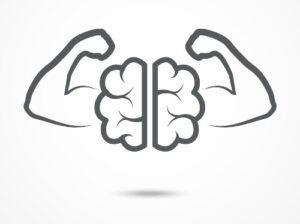As the well-known theorist, Abraham Maslow asserted, these needs have a hierarchical order with the prerequisite of lower level needs to be fulfilled first, before we can start focusing on the top ones in the pyramid. Alderfer further distilled these thoughts to state that humans have three categories of innate needs: Existence, Relatedness and Growth, fitting neatly with Maslow’s hierarchy.
I have observed several times talking to professionally and financially successful people with emotionally supportive relationships that some of them are still not completely satisfied, and have a strong desire to really become themselves at work, not just do business to fund their private life. However, even if you have a profession that you truly enjoy and where you can use your talents every day, a new kind of dissatisfaction tends to develop. An uneasy feeling that there should be more to life, despite the fact that you successfully climbed to the top of the Maslow pyramid.
Richard Barrett offers some food for thought at this point, in his theory called Seven Levels of Personal Consciousness. He defines seven focus areas with primary motivations for each. You will not be surprised to learn that on the first level, people focus on Survival and want to feel safe and secure in the world. At the second, Relationship level, we intend to feel a sense of love and belonging, while at Self-esteem level we wish to feel a sense of personal self-worth. So far, total overlap with the needs theories. Barrett calls the fourth (and middle) level Transformation, where we try to become more of who we really are by uncovering our authentic self. This would, I think, open the floor for self-actualisation.
The model, luckily, doesn’t end here, but highlights the opportunity to build a new pyramid for maybe the second half of our life. Level five is Internal cohesion, in which you find meaning in your life, aligned with your passion or purpose, and create a vision for your future. This is exactly the need pressing those who like their work in which they have reached success, but still crave for something more. The focus, however, is still on yourself.
On the sixth level, Making a difference, the focal point changes from yourself to others. You partner up with people to actualise a common purpose for mutual benefit and fulfilment to really make a difference on a much broader scale than what you would be capable of on your own. The seventh level of personal consciousness, according to Barrett, is Service. Probably only a few people rise to the point where they devote their life to selfless service in pursuit of their passion or purpose. But it’s good to know that it is also an option available for anyone.
On which level do you think you are currently standing? Are you ready to step forward?
Act2Manage Application
An interactive, gamification-based, practice-oriented leadership development application that provides immediate help and enables follow-up to the most common dilemmas.






